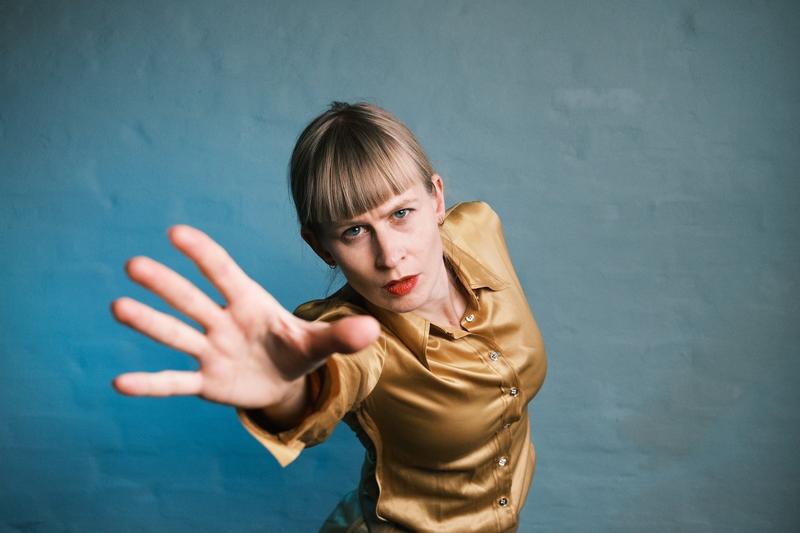
This week, new releases from Everything Is Recorded, Red Baraat with Stewart Copeland, and Branford Marsalis.
Florence And Sampha Featured On Everything Is Recorded’s New Single
Everything Is Recorded is the name the British producer Richard Russell uses for his solo projects. Russell is also the head of XL Recordings, the label that brought you The White Stripes, Radiohead, Dizzee Rascal, MIA and so many more. So his (presumably digital) Rolodex is full of Britain’s best, and for his new single, “Never Felt Better,” Russell reached out to Sampha, the Mercury Prize-winning neo-soul singer, and Florence (Welch, of Florence & The Machine) to provide the vocals. The title is an example of protesting too much – it’s pretty clear that, despite the narrator’s repeated insistence, they are in fact not feeling so great at all. The production is somehow both spare and multi-layered, and the interplay of male and female vocals heightens the emotional complexity of the song.
Jenny Hval Offers A Rose By Another Name
“A rose is a rose is a rose is a cigarette,” sings Norwegian artist Jenny Hval in her new single, “To Be A Rose.” This turns out to be a pivotal line in the song, which seems to conflate Hval’s memories of her mother smoking with her own music-making. This is not as far-fetched as it might seem; like the unpredictable swirling of cigarette smoke, Hval’s songs can veer into unexpected territory, and in past records we’ve heard her go from experimental, off-kilter art songs to dance-ready pop. In “To Be A Rose,” the song begins with what sounds like an incantation rather than actual singing, backed with a stark electronic beat, but by the second half it’s assembled its constituent parts into something lush and lyrical. The song is from Hval’s forthcoming LP Iris Silver Mist, out on May 2.
Red Baraat And Stewart Copeland Reinvent An Earlier Song
It’s not like Red Baraat needed help in the drums/rhythm department. The Brooklyn band has taken the soul-shaking grooves of Punajbi wedding music to listeners around the country, adding gleaming horns and communal vocals. But their new single, a remake of their 2017 song “Gaadi of Truth,” features additional drumming by Stewart Copeland (of The Police), who also remixes the song for the band’s upcoming album Bhangra Rangeela, due on April 25. The result is a fun, typically boisterous song that reflects the high energy of one of New York’s great live acts.
Branford Marsalis Plays Keith Jarrett’s “Belonging” – With More To Come
Sax player Branford Marsalis has taken the idea of a cover and run with it. Not content with covering one song by Keith Jarrett, the sui generis pianist and composer, Marsalis and his quartet are about to release a cover of Jarrett’s 1974 album Belonging, the first he did with his so-called European Quartet. With Marsalis taking the part originally done by Norwegian sax player Jan Garbarek, the quartet has just released the album’s title track, “Belonging.” It was a beautiful ballad back then, and still is today. Marsalis’s playing has occasional nods to and quotes from Garbarek’s original lines, but it also has a liquid quality that is very much his own. The full album, Belonging, comes out on March 28.
Anoushka Shankar Releases Single Inspired By Goa Raves
Because she is the daughter of Ravi Shankar, perhaps the most famous Indian classical musician of the past century, Anoushka Shankar is associated with that style of music. But though she plays the sitar, and does indeed play Indian ragas in the style of her illustrious dad, she has also drawn on jazz, flamenco, various world and electronic music traditions, and more. Her new single, “We Burn So Brightly,” was inspired by the electronic raves she attended in her apparently wilder, younger years in the coastal city of Goa. The track also features another second generation talent, Alam Khan, on sarod (another Indian lute, often compared to a banjo). Khan is the son of famed sarodist Ali Akbar Khan, who actually came West before Ravi Shankar (and was his brother-in-law). But the rhythmic impetus – both trancey and yet in a seven-beat cycle – comes from London-based Sarathy Korwar, who is a leading figure on the London jazz and global music scenes.
